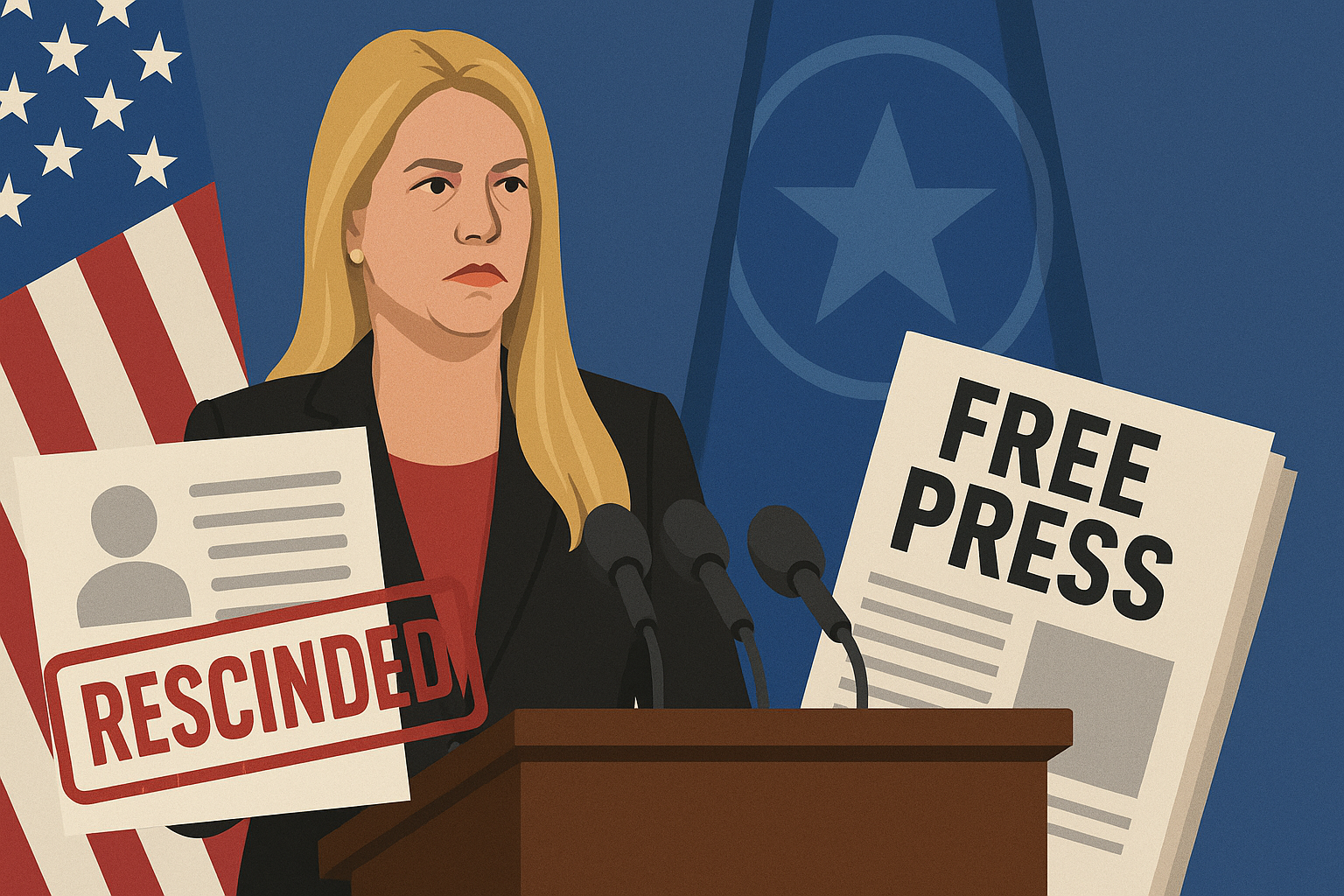Pam Bondi’s decision to rescind Biden-era journalist protections sparks major concerns over press freedom and raises questions about future media rights in the U.S.
In a move that has ignited widespread debate, former Florida Attorney General Pam Bondi has officially rescinded several journalist protections that were implemented during the Biden administration. This controversial decision has prompted strong reactions from media advocates, legal experts, and political commentators who fear its impact on the future of press freedom in the United States.
In this post, we explore what protections were revoked, the reasons behind Bondi’s decision, and the broader implications for journalism and free speech in America.
Background: Biden-Era Journalist Protections
During Joe Biden’s presidency, several measures were enacted to safeguard journalists from government surveillance, subpoenas, and prosecution, especially in cases involving confidential sources.
Key policies included:Restricting government access to journalists’ records without court approval.Protecting whistleblowers who share information with the media.Limiting the use of subpoenas and search warrants against journalists.Encouraging federal agencies to respect press freedom in investigative processes.These efforts were seen as a direct response to prior administrations’ more aggressive tactics against reporters.
Pam Bondi’s Decision: What Changed?
Pam Bondi’s action effectively rolls back many of these protections, arguing that they:
Overstepped executive authority without adequate legislative backing.Potentially endangered national security by allowing unauthorized leaks.Created inconsistencies in law enforcement’s ability to investigate serious crimes involving classified information.Her decision is being positioned as an effort to restore a “balanced approach” between press freedom and law enforcement priorities.
Free Press Concerns Emerge
Journalists and media organizations have responded with alarm.
Major concerns include:Increased vulnerability of reporters who rely on confidential sources.Potential chilling effect on whistleblowers and investigative journalism.Fear of surveillance and prosecution deterring important reporting on government misconduct.
Threats to First Amendment protections, seen as critical pillars of democracy.Organizations like the Committee to Protect Journalists (CPJ) and the Reporters Committee for Freedom of the Press have issued statements condemning the rollback.
Political Reactions: Divided Opinions
As expected, reactions have largely split along political lines:Conservatives argue that national security must take precedence and that the rollback restores necessary law enforcement tools.Liberals and press advocates warn that this decision risks undermining fundamental American freedoms and damaging public trust.Some moderates express concern about how to balance security needs with press rights without leaning too far in either direction.
What This Means for the Future of Journalism
If Bondi’s rollback sets a precedent, we could see:More aggressive investigations into leaks and national security reporting.Greater reluctance from sources to speak to journalists confidentially.Increased legal battles over journalist protections at the state and federal levels.A push for new legislation to codify protections into law rather than relying on executive orders.The media landscape could become much riskier for those reporting on sensitive or controversial topics.
Conclusion: A Pivotal Moment for Press Freedom
Pam Bondi’s decision to rescind Biden-era journalist protections has sparked a crucial national conversation about the balance between press freedom and national security. As legal challenges and political debates unfold, the future of investigative journalism—and the public’s right to know—hangs in the balance.This pivotal moment could define how journalist protections evolve in the years ahead, shaping the relationship between the press, government, and American citizens see more.

